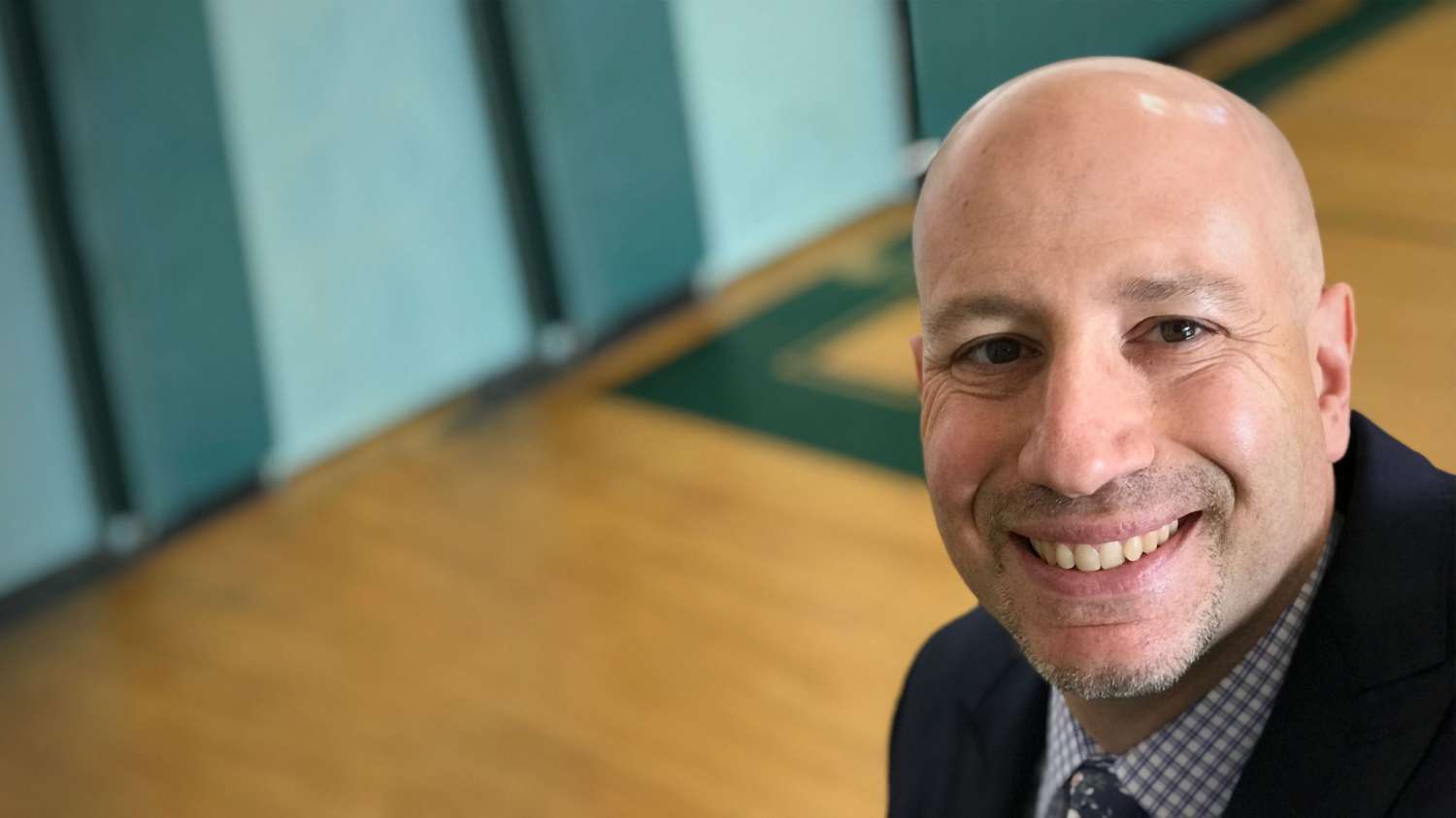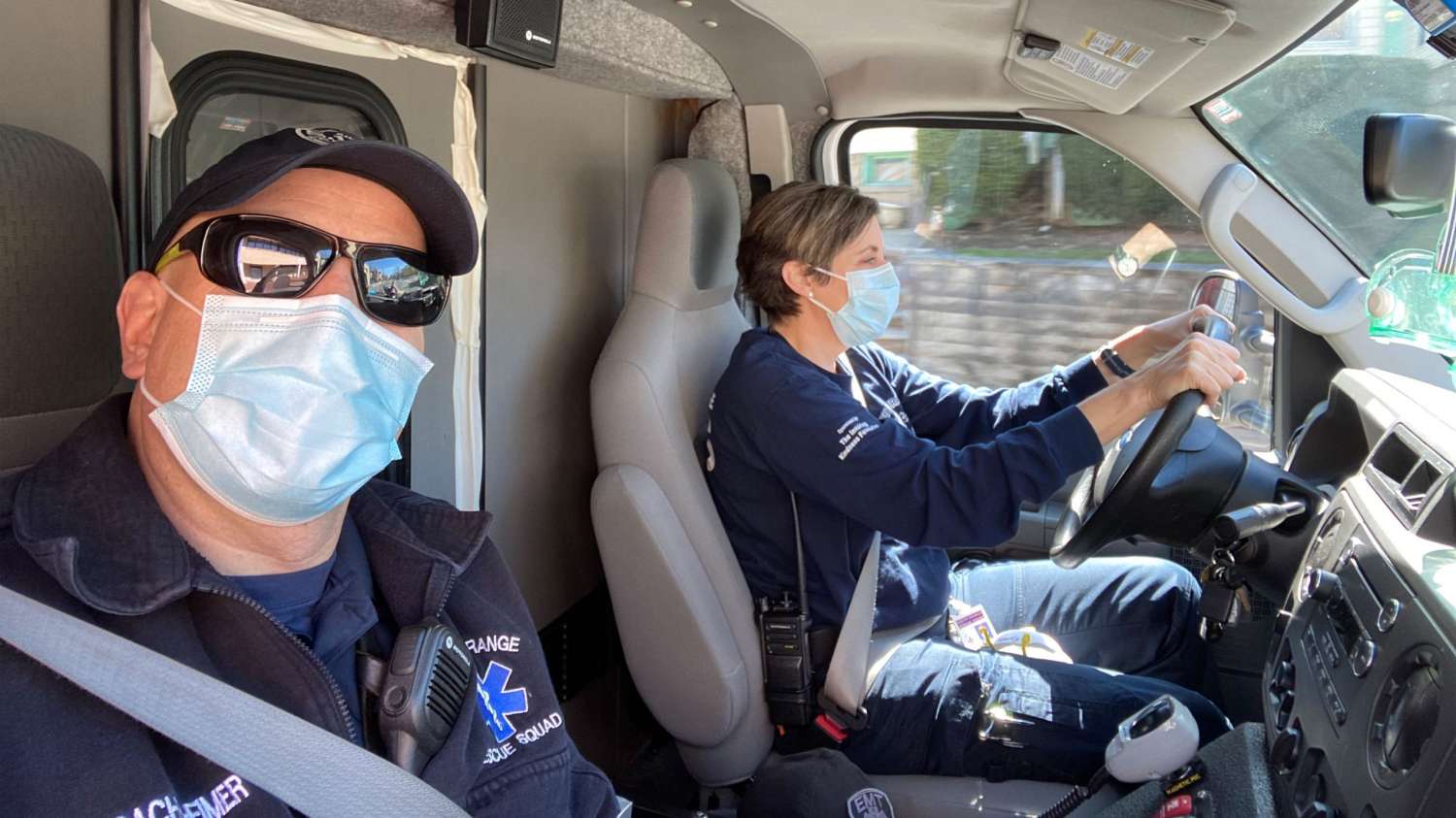Answering the Call
A Montclair State alumnus and expert on virtual learning prepares schools for reopening and moonlights as EMT
Posted in: Education, Graduate School
 Barry A. Bachenheimer ’01 MA follows his passions in teaching and emergency services.
Barry A. Bachenheimer ’01 MA follows his passions in teaching and emergency services.
Barry A. Bachenheimer ’01 MA has experienced the coronavirus crisis on two fronts: As a first responder saving lives, and, when the pandemic closed schools, in educational triage helping teachers move instruction online. Now he’s working on a third front – making sure both teachers and students are ready for an uncertain fall and can adjust to changes.
“I think we got thrust into this really fast, and as a result, I don’t think we had a chance to figure out what was the best. We just worked on what was the most expedient,” Bachenheimer says.
At Montclair State, he’s on call with the Center of Pedagogy, where he is a frequent facilitator,
this spring sharing his expertise on the must-have apps and digital strategies when teaching and learning suddenly shifted. Later this summer, he will provide professional development for returning teachers and clinical interns.
He also works as a volunteer emergency medical technician (EMT) on an overnight shift with the South Orange Rescue Squad. “The months of March and April, there were a lot of sick people we were dealing with. It was very scary.”
Now that the rate of infections has slowed, New Jersey has begun reopening the state, including a September restart for K-12 schools. Gov. Murphy on June 26 said students will return to classrooms at least part-time this fall.
 Barry A. Bachenheimer, left, on call in South Orange, New Jersey.
Barry A. Bachenheimer, left, on call in South Orange, New Jersey.
Bachenheimer is now focused on working with educators to make sure students and teachers can adjust quickly to changes that may occur. “We need to prepare so that schools could move online again if there is a local outbreak or resurgence of cases,” Bachenheimer says. “I can see us quickly having to pivot back to remote learning for two weeks. I can see a lot of back and forth.”
Bachenheimer has more than 25 years experience in the K-12 education field and currently works for the Pascack Valley Regional High School District, where he was recently promoted to assistant superintendent effective July 1.
Nearly two decades ago, his district was the first in New Jersey to launch one-to-one computing, an initiative that provides a computer to every high school student. With the pandemic, its pilot of virtual days when most other schools were closed for inclement weather, enabled instruction for 2,000 students while many other school districts struggled with remote learning or relied on homework packets.
“We are sticking to our four basic concepts, which are flexibility, simplicity, appropriate timing and empathy, and trying to make that all work at the same time,” Bachenheimer says.
Bachenheimer’s doctoral work focused on online learning and he shares his expertise with the Montclair State University Network for Educational Renewal (MSUNER), a school-university partnership.
“In preparation for New Jersey schools opening their doors for fall, he will focus on support for building a learning community in grade school hybrid teaching environments with an emphasis on teaching for critical thinking,” says Network Director Marilyn Davis. This will include advanced teaching for critical thinking in secondary content areas and advanced methods for coaching and mentoring teachers new to a school or school district.
The “other side” of Bachenheimer’s life is in the area of emergency services and public safety, where he has experience in the emergency medical services, firefighting, rescue technician, school security and emergency management fields. He instructs in a variety of areas, including CPR, first aid, tactical medicine, water rescue and first response. In South Orange, he is the training officer for the all-volunteer rescue squad, which includes his teenage daughter Lea, who is also an EMT.
“Helping others, saving lives, and training others to do the same is my personal passion,” he says.
His EMT duty shift is on Sunday nights “and then I go to work bright and early on Monday morning.”
“I’ve gotten really good at time management over the years,” he says. “With the help of some coffee, and a really supportive wife, life moves right along.”
Story by Staff Writer Marilyn Joyce Lehren






 Barry A. Bachenheimer ’01 MA follows his passions in teaching and emergency services.
Barry A. Bachenheimer ’01 MA follows his passions in teaching and emergency services.
 Barry A. Bachenheimer, left, on call in South Orange, New Jersey.
Barry A. Bachenheimer, left, on call in South Orange, New Jersey.
.png?width=600&upscale=true&name=Conversation%20with%20Zaretta%20Hammond%20FB%20Live%20square%20(3).png)